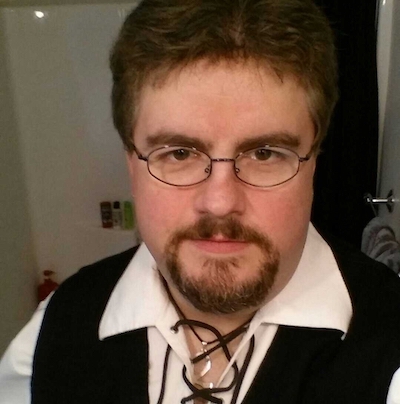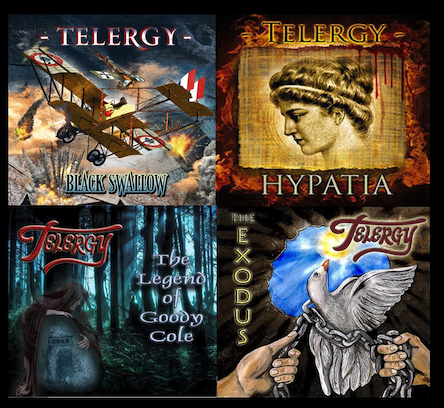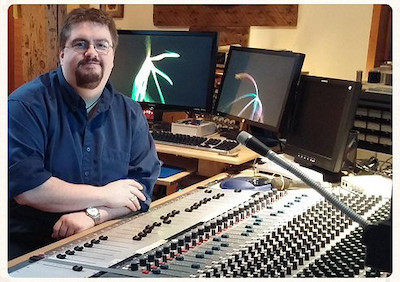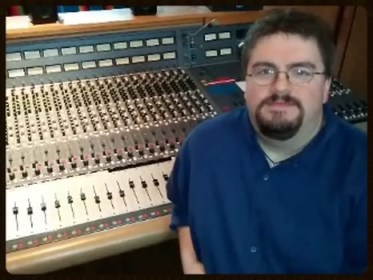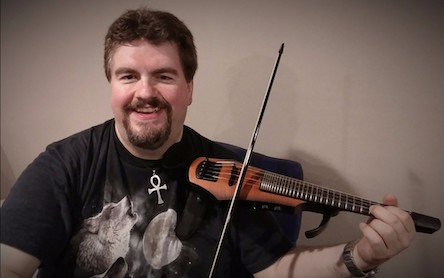 
|
||||
|
|
TELERGY |
|||
|
mwe3.com presents a new interview with
Robert McClung: New Hampshire is beautiful. I live right on the beach. About 45 minutes north of Boston. The White Mountains are only a couple hours north. Very scenic and popular with skiers in the winter. My wife is a recent immigrant from the Philippines. She thinks it’s too cold here all year round, compared to her country, Haha! Yes, the pandemic is a tragedy. We have been very lucky here in New Hampshire to have lower numbers. I am very fortunate to have been affected less than many others. I make my living as a music teacher, so most of my lessons just moved online. I’m not a doctor, and while I have my opinions, I try to keep out of the political area in my public life. I’m not in any sort of position to be making predictions. I want the same as everyone right now. For a vaccine or treatment to be found quickly, and for whatever leaders are in power to guide us safely out of all this so we can get back to happier times. By the way, Nostradamus would be an excellent subject for a Telergy album. But Judas Priest beat me to it. I can’t top that! mwe3: You always do a lot of research preparing for your Telergy albums. Do you consider Telergy to be a kind of musical encyclopedia of information and subject matter for modern day music fans? I can’t think of another artist or band that takes on large scale projects as you have done in the past, I guess unless you go back to Rick Wakeman as he did during his King Arthur and Journey To The Center Of The Earth periods. Although even I, who lived through those early rock operas and witnessed the first “concept albums” I wasn’t prepared to experience the story of Eugene Bullard, who I had no idea even existed! Thank you for waking us up to this great man. Robert McClung: Rick Wakeman was a massive influence. I love his solo material. I’m not sure if Telergy is an entire encyclopedia, but I do intend for it to be something more than just a prog rock band. I want the listener to learn something along the way. Not just the stories themselves, but their deeper messages and meanings. A pretty love song, a politically sharp rap, a dancy pop hit or a rocking headbanger about partying, all have their place in modern music and culture. But I want Telergy to dive deeper. Take the listener through an audio expedition through time. Let them experience the thoughts and feelings of incredible people they may not have known existed, or maybe see their stories in a new and different light. I like the storytelling aspect just as much as I enjoy the music.
Robert McClung: Every Telergy album forces me to explore new musical paths to effectively communicate the story. With The Exodus I had to incorporate Jewish music. With The Legend of Goody Cole I included British folk music from around that period. On Hypatia I brought in Middle Eastern themes. For this album, I had to include blues and gospel, because Eugene came from Georgia. I had to include military style themes, because he was a soldier. And I had to include 1920’s era big band jazz, because he played drums in a jazz band during that time. And I had to weave it all around the symphonic, progressive metal bedrock that is the Telergy sound. It’s quite a challenge. But it’s a challenge I enjoy. I drives my creativity and forces me to learn new things. “Le Grand Duc” (the Grand Duke) was the name of one of two nightclubs Eugene owned. The other was called “L'Escadrille” after the Lafayette Escadrille squadron that he flew for during WWI. Yes, it’s a clarinet. Wonderfully played by Katrina Veno, a local New Hampshire musician. Standing in for Eugene Bullard on drums on that tune is Todd Sucherman of Styx. mwe3: What was it about the saga of Eugene J. Bullard that made you want to highlight his story on what turned out to be the 2020 Telergy called Black Swallow and how did you find out about this iconic figure? I was reading his story on Wikipedia. It’s pretty intriguing and quite exciting kind of story. Did his story tug at your heartstrings? Despite all his vital contributions and colorful life, it’s sad he died relatively young. In your own special way, you have a knack to unearth these tragic figures or even groups of people, in history that are maligned, oppressed or even killed. In an era when black lives matter, Eugene’s story seems to be tailor-made for modern times.
Yes, I do tend to lean towards the stories of people who have been oppressed and held down. Maybe because I felt the same way in my younger days, I can identify with them? But I can’t claim to have experienced even a fraction of the hardship as my albums characters have. By comparison, I’ve led a very privileged life. They are braver and stronger than I could ever hope to be. Yes, it’s very fitting that this album comes out during a time when we as a society are focusing on race once again. I truly hope that Eugene can serve as an inspiration to those in that movement who are fighting for the same things he fought for. Freedom and equality. mwe3: With so many guest artists on Black Swallow you must have some steep competition to get your own instruments into the mix! It’s just amazing how many star musicians you give a turn in the musical spotlight. Tell us about bringing in some of the more renowned players such as legends like Phil Keaggy, Vernon Reid, Michael Manring and Tony Levin. What tracks are they on and how did they record their parts and how did you import their parts on to the Black Swallow album? I can’t believe you also located Magic Dick from the J.Geils Band plus the violin solos by David Ragsdale is excellent. What tracks are they on? Were these artists very influential to you earlier in your life? Do you have a favorite Keaggy album? Talk about prolific musicians! Robert McClung: I’m not worried about getting myself in the mix. In fact, there are several Telergy tracks where I’m not even playing anything at all. I have enough to worry about with the compositions, the arrangements and the production. I’m happy to let others have the spotlight. I’m extremely lucky to work with all of the incredible people you mentioned. Many of whom were a huge part of my early musical development. I first met David Ragsdale when I was 19. As a young rock guitarist just starting to get into playing violin, he was an idol to me. He’s also one of the nicest, most down to earth guys you’ll ever meet. I first met him before a Kansas show in Hampton Beach, New Hampshire. It was before the house was opened and he was onstage messing with his gear. I walked up to the stage and asked “Uhh, don’t you have someone to do that stuff for you?”. He replied “Man, do you know how hard it is to find a violin roadie!”. Haha!
I met Phil Keaggy at a private party awhile back. He was doing a gig with Tony Levin, who also appears on the album. When I told him about the project, he said he would love to be involved too. He’s playing the acoustic guitars on the song “Chased Pt. 2”. Locating Magic Dick of the J. Geil’s band wasn’t difficult. He lives fairly close to me. If you’re looking for a legendary rock harmonica player, it’s a short list, and his name is at the top. It was such a thrill to spend time with him and hear his stories. Recording just a few minutes of harmonica took hours because we would just keep chatting away. It was an honor to work with him, as it is an honor to have worked with all the amazing musicians that have become part of Telergy. mwe3: Have there been any changes in the gear you play yourself? Last time around you mentioned your Taylor guitars and on the electric side, for Black Swallow did you also go back to Fender Strat, PRS and 335 guitars and how about amps and pedals / effects that were used on Black Swallow and what are some other recent gear developments in the music world for you, guitars, keyboards, recording devices, pedals amps, etc. Robert McClung: Yes, still love my Taylors. I have 7 or 8 now, I think. Electrics are a couple of Fender Strats, heavily modified, PRS ce24, Epiphone 335, a couple of different Deans and a new Danelectro baritone. The biggest additions to my gear recently have been an NS Design NXT5a, five string, fretted, electric violin. And a new pedal called the vSound 2, made by Signal Wizard Systems. It digitally models some of the finest acoustic violins in the world so you can pick and choose those tones for your electric violin. Incredible technology.
Robert McClung: Ed is such a magnificent artist. My ex-wife did the covers for the first two Telergy albums, and I think she did a great job. She’s very talented as well. The cover for the first album was actually hand painted. But when Ed came in on the third album, I think it definitely kicked things up a notch. He knows the scene and has such a deep connection to the genre. Besides the stories, I don’t need to give Ed too much instruction. He knows his own way around. I knew I wanted Eugene’s plane in battle on the cover. Technically, the model of plane on the cover isn’t the same exact model he actually flew. But it looks so fragile and dangerous I told Ed to leave it. Only a WWI aviation enthusiast would notice the difference anyway. Ed is another person I am truly blessed to have as part of the Telergy armada. I may write and produce the albums, but it takes dozens of other people to make this work. mwe3: What do you think Eugene Bullard would make of the world of 2020? I don’t like to discuss politics in music but maybe we need more people like Ballard in the world of today. Did you wonder why Eugene came back to the US after getting wounded in WWII? Plus, it’s amazing his early body is buried in Flushing NY. Are those type of people from the “great generation” years a thing of the past? Robert McClung: Eugene came back to the US because the Nazis had taken over France. Since he had worked as a spy for the French resistance, the Nazis surely would have executed him had he stayed in France. He also had to think about the safety of his two young girls. I visited his grave in Flushing, New York. It’s near my sister’s house. It was a very moving experience. Eugene stood up for what he believed in. He never backed down from a fight. I believe we have those same types of people amongst us today. Fighting in wars all across the world. Protesting in the streets for justice while police tear gas them and shoot at them. Those are heroes too. Every generation has them. The human desire for freedom and justice is never ending. What I find fascinating, especially in the modern world of digital media, is how the oppressors spin things around to make it out like they are the ones being violated by the oppressed. It has become a game of who can play the biggest victim.
Robert McClung: Sure. I think being known as “The band that entertains and informs” Is a fitting moniker. I’ll take it! What I hope fans will feel and experience are the emotions that the characters go through throughout their ordeals. A fan recently told me that they openly wept when they first heard Troy Donockley’s uilleann pipe solo on the song “Infantry”. It represents the moments after a battle, when those left living survey the battlefield, littered with the bodies of the fallen. This person told me “I could see the bodies on the ground. I could smell the gun powder. It was gut wrenching”. When my music can reach inside a person’s soul and relay feelings on that deep of a level, then I think I’ve done my job. Every one of us has our own personal stories. But when we can connect emotionally to the stories of other people, then we become more compassionate and empathetic. More human. It brings us all closer. Music is one of those magical conduits that make those connections possible. I certainly hope it doesn’t take 5 years for the next one either. But these albums are massive undertakings, and I have other responsibilities that eat up much of time. But as long as I can pick up an instrument, I’ll keep chipping away and try to make as many as I can.
|
|
|||
|
||||

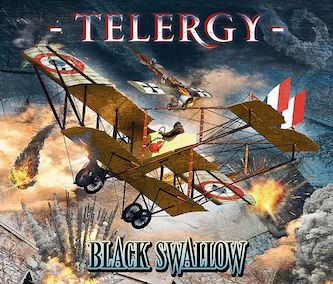 Multi-instrumentalist Robert McClung revels in taking on large, full-scale musical endeavors and he rises to the occasion in style on Black Swallow, the 2020 CD by his ongoing musical project Telergy. Back in 2015, Telergy released Hypatia, a musical depiction of a teacher, philosopher, astronomer and mathmatician living in Alexandria, Egypt during the time of the burning of the Library of Alexandria. At that time the city was ruled by Greece, and she was most definitely of Greek heritage. Now, in 2020, Black Swallow takes us back in time for a full-scale prog-rock epic surrounding the life and times of another underrated near mythological figure in world history, Eugene Bullard, who gained fame as the first African-American fighter pilot serving in France during World War 1. Although he was born in 1895, at a very young age, Eugene Bullard stowed away on a ship bound for France, where as a fighter pilot he gained fame as “The Black Swallow of Death”. In between fighting for the allies in World War 1 & 2, Bullard later gained fame for his drumming in French jazz clubs he helped establish. These are epic stories of historical proportions that Telergy love to dive head first into and to top it all off, Robert McClung has written a series of progressive rock instrumentals that are also accompanied by spoken word narratives that tell the story of Eugene Bullard. Black Swallow clocks in at 68 minutes and features 19 tracks, half narratives and half progressive instrumental music. To enable the listener to differentiate, the instrumentals and spoken word tracks are separated to more easily allow the listener to focus on both the story and the music. In addition to writing and arranging the music on Black Swallow, Robert McClung contributes plenty of his own musicianship, adding guitar, bass, violin, keys, flutes and much more. McClung proves to be a formidable composer and musician in Telergy, yet the kicker is he enlists a number of World Class artists to accompany him throughout, including to name a few, Oliver Wakeman (keyboards), Tony Levin (bass), Pete Trewavas (bass), Dee Snider (vocals), Joel Hoekstra (guitar) Colin Edwin (bass), Vernon Reid (guitar) and many, many others. Featuring Robert McClung supported by so many legendary artists adding their own touches to the album, Black Swallow is a major prog-rock undertaking worthy of the attention of music fans world-wide.
Multi-instrumentalist Robert McClung revels in taking on large, full-scale musical endeavors and he rises to the occasion in style on Black Swallow, the 2020 CD by his ongoing musical project Telergy. Back in 2015, Telergy released Hypatia, a musical depiction of a teacher, philosopher, astronomer and mathmatician living in Alexandria, Egypt during the time of the burning of the Library of Alexandria. At that time the city was ruled by Greece, and she was most definitely of Greek heritage. Now, in 2020, Black Swallow takes us back in time for a full-scale prog-rock epic surrounding the life and times of another underrated near mythological figure in world history, Eugene Bullard, who gained fame as the first African-American fighter pilot serving in France during World War 1. Although he was born in 1895, at a very young age, Eugene Bullard stowed away on a ship bound for France, where as a fighter pilot he gained fame as “The Black Swallow of Death”. In between fighting for the allies in World War 1 & 2, Bullard later gained fame for his drumming in French jazz clubs he helped establish. These are epic stories of historical proportions that Telergy love to dive head first into and to top it all off, Robert McClung has written a series of progressive rock instrumentals that are also accompanied by spoken word narratives that tell the story of Eugene Bullard. Black Swallow clocks in at 68 minutes and features 19 tracks, half narratives and half progressive instrumental music. To enable the listener to differentiate, the instrumentals and spoken word tracks are separated to more easily allow the listener to focus on both the story and the music. In addition to writing and arranging the music on Black Swallow, Robert McClung contributes plenty of his own musicianship, adding guitar, bass, violin, keys, flutes and much more. McClung proves to be a formidable composer and musician in Telergy, yet the kicker is he enlists a number of World Class artists to accompany him throughout, including to name a few, Oliver Wakeman (keyboards), Tony Levin (bass), Pete Trewavas (bass), Dee Snider (vocals), Joel Hoekstra (guitar) Colin Edwin (bass), Vernon Reid (guitar) and many, many others. Featuring Robert McClung supported by so many legendary artists adding their own touches to the album, Black Swallow is a major prog-rock undertaking worthy of the attention of music fans world-wide.